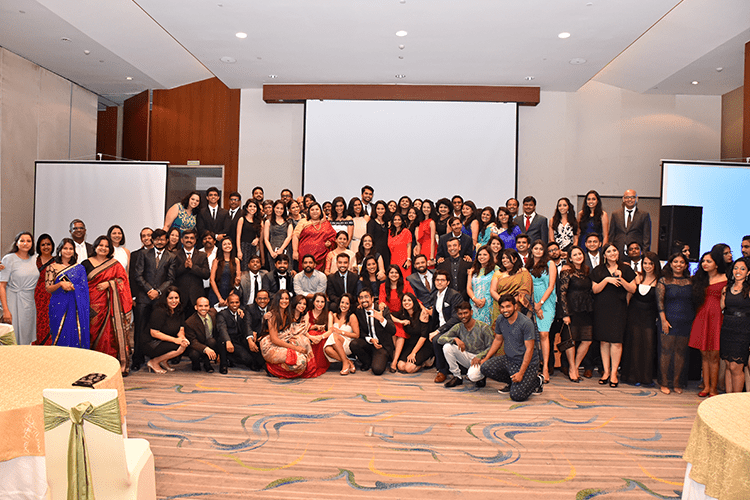By Olina Banerji, India Today
She’s spent 20 years in an industry that everyone loves to hate. Nandita Lakshmanan, CEO, talks about what makes The PRactice thrive.
“The industry has let the world paint a convenient caricature of what a PR person should be. We don’t do enough good PR for ourselves,” she laughs. The PRactice was recently the first Indian PR agency to make the shortlist for the Cannes Lions award in the Integrated Communications led by PR category. Lakshmnan is nothing short of elated.
“For us it was the category we were nominated in that was special. It’s closely tied to our belief that public relations must be at the heart of every campaign strategy,” she says.
At 42 Lakshmanan is a veteran of a nascent industry. Pre-liberalisation, PR firms were unheard of. It was only when the economy opened up that the industry was able to familiarise itself with international standards of image building. A newsreader on All India Radio in 1993, Lakshmanan was instantly attracted to this burgeoning of the Indian consciousness.
“It included a mix of field work, journalism and a desk job. It seemed like the most exciting thing to do,” she says of a career that began with the PR giant Genesis, a month after she’d completed her Masters from Delhi University. As the economy opened up, so did the global ambitions of corporations, and creating a solid communication infrastructure became essential to stave off the media cacophony.
Rising above all that noise has been the defining factor of Lakshmanan’s 20-year-old career. She began humbly, with her first client being Delhi’s premier cultural hub, India Habitat Centre. Lakshmanan grew along with the PR industry in India and shaped her own perception of what good PR practice really is.
“It’s not just about handling media relations. The media is a very critical tool but its still the means, not the end,” she says. Lakshmanan’s team members at The PRactice learn this mantra early and instead focus on a more integrated form of PR, which goes beyond drafting a great press release or checking off boxes.
“PR is not marketing,” she says without mincing words, “Marketing is an external function. Good PR should be part of a company’s DNA. It’s very much an internal corporate function.”
Always dressed in her trademark silk saris, Lakshmanan doesn’t betray any sign of being a power broker. Her style is effortless and casual, and nothing about her seems overt. “I don’t network too much,” she claims, “and we never make cold calls to clients.” It’s a work ethic she’s stuck with from the time she was a junior account executive with Genesis and was sent to represent the firm in Bangalore.
“We’d just won the Sun Microsystems account to launch them in India. I was the face of the company there and helped set up the Hyderabad office. I’d meet clients, party the night away and still be able to catch early morning flights. It was the high of being in my 20s,” she smiles.
Lakshmanan built Genesis in the south, acquiring clients like Intel, Volvo and Digital, before she decided, in 1999, to take a different route. She’s reticent about mentioning what made her break away from her mentors at Genesis. “I think the firm outgrew me. They were looking to expand. My endgame was not profit, it was consolidation,” she says.
Genesis however was only the first rung of the ladder. Inundated with calls from her former clients, Lakshmanan wanted to jump back into the fray as soon as possible. “I already had two clients before I started The PRactice. My business hit the ground running,” she adds.
With a team of three women, Lakshmanan relied completely on word-ofmouth for the firm to grow, gunning for startups that were economically and culturally revolutionising Bangalore, even though the big money lay in the dotcom bubble, fuelled by generous venture capitalists.
“But there was nothing sustainable in their business plans,” explains Lakshmanan. The PRactice chose to go with smaller players instead, and provided counsel to product developers who they thought were creating technology for the mainstream.
According to Lakshmanan, the turnaround time for an idea was much quicker with a start-up and they were more open to adopting “alternative” PR practices. The mainstay of this strategy was always growth through retention. Almost at a hundred employees now, the firm still puts more focus on retaining old businesses than joining the rat race to win new ones.
Lakshmanan’s big ticket came in 2000 when her firm won IT giant Infosys over in a 30 minute pitch. “We had gone in thinking that we had nothing to lose. We were only nine months old at the time,” she says. Not only did the firm win the contract, they’ve retained Infosys as a client through 12 years, and built a communication channel for the company.
“There was no structure to the messages being sent out. Everyone knew who they were, but no one knew what they did,” she says. As Infosys expanded outside of Bangalore in 2004, The PRactice sensitised them to becoming a national icon, interacting with the media and even managed the cyclical process of successions for the firm.
“People needed to know about their knowledge management frameworks, their qualitysystems and moreover, their inherent goodness as a company,” says Lakshmanan about her favourite client. The affection is mutual. “Nandita is a rare leader who brings laser focus to customer satisfaction, quality and speed of reaction which are extremely important for a successful PR company,” says former Infosys chief Narayan Murthy.
Lakshmanan cuts a very different figure from the usual ball busting, aggressive publicist. For those who relate PR with media manipulation, her strategy is a welcome change. The conniving genius of a Peter Mandelson or the shrewdness of a Pat Kingsley are missing. When the inevitable question about Niira Radia, former competitor and owner of the now defunct Vaishanavi Communications comes up, Lakshmanan pauses for a long moment before answering.
“I wouldn’t even call that PR,” she says finally, “and I wouldn’t call her a PR professional. I’d say that she owned a PR firm, whose members probably didn’t know what was really going on.” Lakshmanan here is referring to Radia’s lobbying with top journalists and politicians to ensure that DMK’s A Raja got a ministerial birth in the UPA Government.
Raja would go onto orchestrate one of the biggest economic scams of the decade-the allotment of 2G spectrum where the loss to the exchequer is an estimated Rs 30,000 crore. “That was deal making, pure and simple. Contrary to what the world thinks, Radia’s scam actually helped us bust a few myths about the industry. It differentiated good PR practice from deal making,” she says.
What worries Lakshmanan today, more than competitors like the ambitious Radia, is that there are no black and white rules when it comes to dealing with the media. “When I talk about influence, it’s a strategy of engaging with people to make them look at my point of view, to consider both sides of the story and not just the one with the higher decibel level,” she adds.
She put this strategy to good use when handling the Bangalore International Airport account. The project was being challenged by corporate stalwarts turned activists. “The authorities had left a lot of gaps in their communications to the media. This vacuum was being filled by the opposition. We advised them to direct media attention towards the facts of the project, instead of going into denial mode,” she says.
Fencing or blocking information, especially in the age of Twitter and Facebook would be foolhardy, and it’s a bitter pill that Lakshmanan has had to swallow. “I can’t stop anyone from writing a story. The most I can do is build enough trust so that our version is given just as much credibility.”
Today, the gameplan instead is to build sustainable, long term relationships with clients. “For me growth without consolidation is chaos. As I add new verticals to the company, I spend sleepless nights wondering if we are putting in enough manpower and resources,” she says. Lakshmanan speaks of a bad patch in between when the firm began losing business.
“It’s because we’d started pitching for everything. We had to introspect,” she says. Her firm has also enjoyed a debt-free growth trajectory, ensuring that the business grows organically. “Being debt free is something I learnt from my father-in-law. I follow the middle class principles of always living within my means,” says Lakshmanan.
Never in the red, the firm has recently added a consumer vertical in addition to its technology and healthcare portfolio. “We held out on the consumer sector for years since we felt we didn’t have the expertise to do it. We didn’t want to be a generalist firm,” she adds.
She may love to sink her teeth into every new account, but a leadership role is what takes up most of her time. “Nandita knows how to build strong teams and surrounds herself with skills that complement as well as align with hers,” says mentor Joan Amble, an ex-banker who connected with Lakshmanan through the US State Department’s Global Mentoring Programme and struck up a friendship.
I’m not a workaholic and I’m able to switch off from work easily. I also enjoy watching movies on my own as I like the solitude,” says Lakshmanan. While juggling a career and a new born a few years ago may have been a challenge, it helps that her husband Sharan and she enjoy a marriage of equals. These days, she indulges her son Aryaman’s craze for superhero movies. Their recent favourite was The Amazing Spiderman.
Ever the strategist, Lakshmanan is now concentrating on the fourth, and most promising vertical for the firm-social innovation. “It’s where the future of India lies. Beyond the metros, in smaller towns and cities is where innovation is born,” she signs off.




